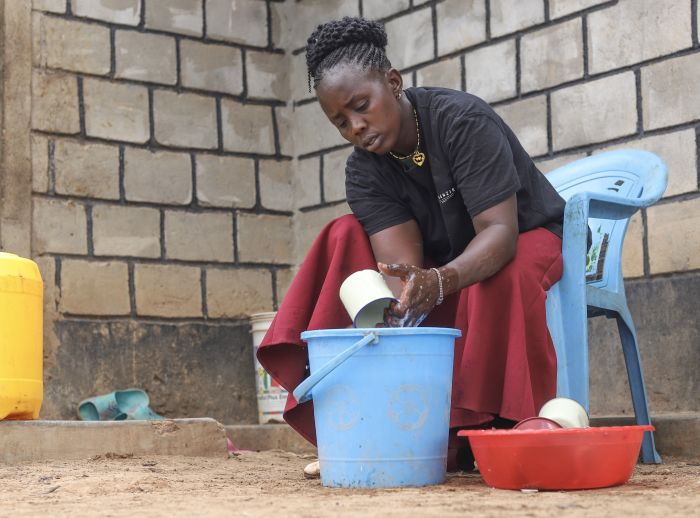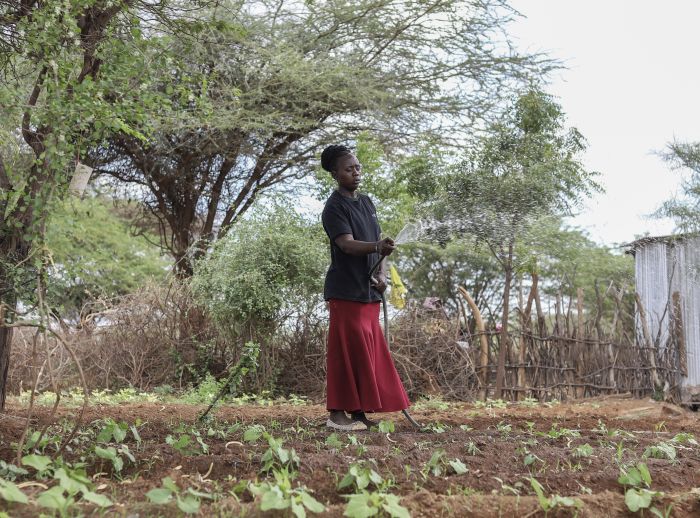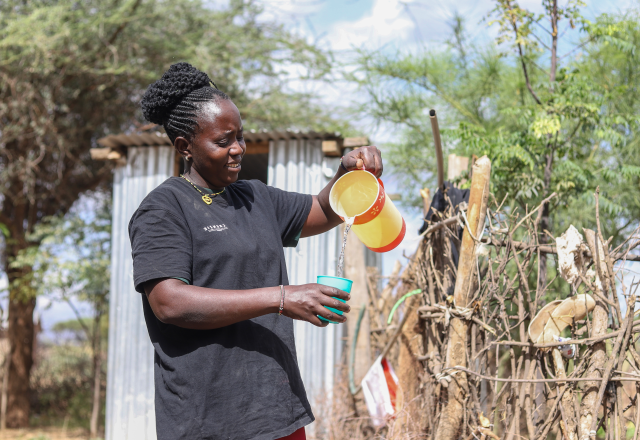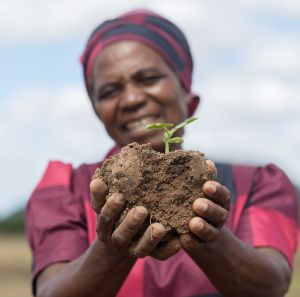
In Ngaremara Village in Eastern Kenya, a water point is helping an entire community to lift themselves out of the devastation of drought. Catherine Bahati has lived there for over 20 years. Her goats have survived the drought, thanks to the water point,
Catherine is now the Treasurer of the water committee, which was set up as part of the drought response project. She explains that for the community, water is not only their source of life, but also the source of their livelihoods.
“In this region having livestock is everything. We depend entirely on keeping and rearing livestock since we do not have an alternative source of livelihood. When we lose our livestock due to lack of water, we are left stranded,”— Catherine Bahati.
Breaking the cycle
Catherine and her community have experienced water scarcity for years. She wants to ensure that her children do not have to walk far to collect water. “Our parents did it, their parents did it and now we are also experiencing the same fate,” she notes.
“We don’t want our children to go through the same thing."
Low supply
One borehole used to serve the whole Ngaremara region and this didn’t offer enough supply for everyone. Catherine notes that “supply was so low that we were forced to fetch water at least once a week.”
“This would last us close to 2-3 days at most and the rest of the time we had to walk extremely long distances to fetch water,” she continues.
Access to water
Water dispensing points, water tanks and a solarised water pump were all installed under the drought response project. The tanks give the community access to running water, piping from the borehole to the water points makes life easier for those living in the village. They can access water closer to their homes.
Good governance
A water committee was formed to regulate timing and manage the watering points to ensure that they are running efficiently. Catherine sees being part of this committee as a huge responsibility.
This project was co-funded by Oxfam in Kenya and the German Federal Foreign Office. It was implemented along with local partners.
“As a member of the committee, the burden to ensure this works is huge for me, I owe it to my community to ensure they have running water at any given time,”— Catherine Bahati





